- Home
- Christie Golden
Assassin's Creed: Heresy
Assassin's Creed: Heresy Read online
625 3rd St, San Francisco,
CA 94107, U.S.A.
© 2016 Ubisoft Entertainment. All Rights Reserved. Asassin’s Creed, Ubisoft, and the Ubisoft logo are trademarks of Ubisoft Entertainment in the U.S. and/or other countries.
Published by Ubisoft.
The publisher does not have any control over and does not assume any responsibility for author or third-party websites or their content.
No part of this publication may be reproduced, stored in a retrieval system, or transmitted in any form or by any means, electronic, mechanical, photocopying, recording, or otherwise, without written permission of the publisher. For information regarding permission, write to Ubisoft, 625 3rd St, San Francisco, CA 94107 Attention: Legal Department.
This book is a work of fiction. Names, characters, places, and incidents are either the product of the author’s imagination or are used fictitiously, and any resemblance to actual persons, living or dead, business establishments, events, or locales is entirely coincidental.
Special thanks:
Yves Guillemot, Laurent Detoc, Alain Core, Geoffroy Sardin, Yannis Mallat, Etienne Allonier, Aymar Azaïzia, Antoine Ceszynski, Anouk Bachman, Maxime Durand, Richard Farrese, Arin Murphy-Hiscock, Jose Holder, Raphaël Lacoste, Yves Lançon, Misha Benjamin, Virginie Gringarten, Marc Muraccini, Cécile Russeil, Faceout Studio, Bryan Longoria, Jeff Miller, Paul Nielsen, Torrey Sharp, Michael Beadle, Heather Pond, Joanie Simms, Megan Beatie, Andrien Gbinigie, Stephanie Pecaoco, Sain Sain Thao, Michael Kwan, Clémence Deleuze, François Tallec.
ISBN ePub 978-1-945210-25-9
Book design by Faceout Studio, Jell Miller and Paul Nielsen
Adaptation to electronic format by Studio C1C4
ABOUT CHRISTIE GOLDEN
Award-winning and eight-time New York Times bestselling author Christie Golden has written fifty novels and several short stories in the fields of science fiction, fantasy, and horror. She has earned wide critical acclaim and a devoted fan base for both her original work and her authentic and skillful literary treatment of many beloved film, television, and gaming franchises.
Golden has written more than a dozen Star Trek novels, and about the same number of World of Warcraft and StarCraft novels. She has written three books in the Star Wars series Fate of the Jedi, which she co-wrote with Troy Denning and the late and greatly missed Aaron Allston, as well as Star Wars: Dark Disciple, the novelization of the unaired episodes of Star Wars: The Clone Wars, cited as one of the best of the new canon novels.
Golden has been an aficionado of the Assassin’s Creed universe since 2014, and has already written two books for the franchise: Blackbeard: The Lost Journal, a companion book to the video game Assassin’s Creed IV: Black Flag; and Assassin’s Creed Unity: The Abstergo Employee Handbook. Assassin’s Creed: Heresy is the newest addition to this list.
Christie Golden has been publishing books for twenty-five years. The TSR Ravenloft line in 1991 was launched with her first novel, the bestselling Vampire of the Mists, which introduced elven vampire Jander Sunstar. To the best of her knowledge, she is the creator of the elven vampire archetype in fantasy fiction. Among her original fantasy novels are On Fire’s Wings, In Stone’s Clasp, and Under Sea’s Shadow, the first three in her multi-book fantasy series The Final Dance. Her very first original novels, Instrument of Fate and In Stone’s Clasp, are currently available in digital form nearly fifteen years after their original publication.
Born in Atlanta, Georgia, Christie Golden currently lives in Virginia. You can find her online at christiegolden.com, on Facebook as Christie Golden, and on Twitter @ChristieGolden.
This, my fiftieth novel, is dedicated to every reader who has ever picked up a copy of my work and found delight, wonder, poignancy, excitement, food for thought, or just plain fun within its covers— and also to all of those who will (I hope!) find the same in the next fifty.
PROLOGUE
The autumnal night’s chill sliced through the man’s thin shirt as he fled, feet flying over first the concrete pathway, then the manicured grass of the rooftop’s park. Why did I come up here? he thought, wildly and far too late. I’m a bloody rat in a trap.
The Templars were behind him.
They knew where he had fled. And they knew, as he did, that other than the lift and the two stairways from which they now emerged with grim and silent purpose, there was no way off this roof.
Think. Think!
Thinking had saved him before, many a time. He’d always relied on logic, on rationality, on analysis, to solve every predicament that life in all its sadistic whimsy had thrown him, but now it was of no use to him at all.
The deadly percussion of gunfire exploded behind him. Trees, his rational mind shouted, and the logic saved him. He altered his path, zigzagging to make himself an unpredictable target, careening erratically like a drunken man toward the trees and shrubberies, statuary and now-vacant ice cream and beverage stalls that would shield him from the hail of bullets.
But it would only delay the inevitable.
He knew very well what the Templars were capable of. And he knew what they wanted. They were not coming to question him, or capture him. They were intent on killing him, and therefore, very, very soon, he would be dead.
He was not without a weapon himself, one that was ancient and powerful. A Sword of Eden, which had known the grip of both Templars and Assassins through the centuries. He had used it earlier. It was strapped to his back, its weight calming and reassuring, and he would leave it there. It would not serve him now.
The Templars were single-minded of purpose, dedicated only to dominance and death—his. There was only one way out, and it would be a bloody miracle if it worked.
His heart was slamming against his chest, his lungs heaving, his body taxed to its limit because in the end, he was only human, wasn’t he, no matter what kind of training he had, no matter what sort of DNA was floating about in his blood. And he didn’t slow, couldn’t slow, couldn’t allow that logical, analytical, rational brain of his to interrupt the signals from the deep primal instinct of survival. Couldn’t let his brain overrule his body.
Because his body knew what was called for. And it knew how to do it.
A tree branch exploded right beside him. Splinters grazed his face, drawing blood.
The fate offered by the Templars behind him was one of heartless certainty. The stone roof that encircled the edge of the rooftop garden of the London office of Abstergo Industries offered a wild, desperate chance.
If he had the faith to take it.
He didn’t slow. As he approached the wall, he surged forward, clearing it like runner would a hurdle, his long legs pedaling in the air as he arched his back, spread his arms—
—and leaped.
CHAPTER
ONE
Torchlight capered over the stone walls of the chamber, casting grotesquely distorted shadows over the iron-banded wooden door and the life-sized portrait of the greatest Templar Grand Master who had ever lived. The Postulate, clad in a white vestment with a second, heavier outer red robe, gazed up at the image of the white-bearded face that regarded him, the eyes kind, the pose strong.
A voice spoke in the silence, rich and smooth and deep. “Jacques de Molay was the last public Grand Master of the Order of the Knights Templar. He was falsely accused of heresy by unscrupulous men. Men interested not in the betterment of humanity, but only in their own selfish desires. The best of us confessed to the worst of crimes; crimes he did not commit. His enemies, and history, believed the Order had died with him. It did not.”
The Master Templar stepped into the chamber to stand beside the Postulate. “Jacques de Molay died, in agony, so that the Order might live—safely, in secre
t, known only to those who also would gladly die for it.”
The Postulate looked into the Master’s dark eyes. “Be humble as dust and still as stone,” the Master said. He stretched out a gloved hand, and pointed toward the marble floor. The Postulate lowered himself so he lay face down on the cold stone, arms stretched out to either side, in the form of a cross.
“You will pass through the shadows of the night alone with the Father of Understanding. May he strip from you all that does not strengthen the Order, and clothe you with certainty. May he empty you, and refill you with purpose. Sleep not, dream not. As the day breaks, we will come for you. If we find you worthy, we shall elevate you. If we find you lacking, we shall turn our backs upon you. May the Father of Understanding guide you.”
The Postulate heard the soft sounds of slippered feet and the creak, slam, and click of the door as it was closed and locked.
He was alone, with only one way out—through that door, as a Member of the Inner Sanctum.
If he failed…. No. He would not consider the option.
There was no danger of sleep. The torches provided light, but no warmth, and the marble leeched his body heat despite his double layer of ritual clothing. Time, aloof and leisurely, stretched out, unmoved by one man’s discomfort. After what seemed like an eternity, the welcome rattle of the skeleton key in the door came at last. The Postulate was hoisted by his arms and bit back a hiss of pain; lying motionless for several hours on the merciless stone had taken its toll.
He followed the pair that had lifted him to his feet in silence. The Postulate still strode upon stone, but now, it was hard slate. They passed beneath an arched gateway of brick and rock. The large tree trunks flanking it stretched upward, disappearing into the darkness, extending past the reach of the faint light of torches flickering in their sconces.
Robed, cowled figures awaited him. Although each held a beeswax candle, their faces remained swathed in darkness, save for the glint of eyes caught by firelight.
“The human body has its heart,” the Master Templar intoned. “The earth has its core. All things have a center, whence comes their deepest strength. The Templar Order, too, has its Inner Sanctum. Nine there must be, three times three; the ninth you shall become, if you are worthy. Speak now of three true things you learned about the order during your Vigil.”
The question caught the Postulate off guard. His mind went blank for a moment, then he spoke.
“I have learned that genuine knowledge only comes to those who truly hunger for it. I have learned that power must be wielded by those above the fray, for only they can see the interweaving of the pattern. And I have learned that wisdom is the execution of power guided by knowledge and understanding.”
There were no words spoken, but some of the Inner Sanctum members exchanged glances.
The Master Templar continued. “As all members of the Order are rare in this world, rarer still are those chosen to join the Inner Sanctum. You have already vowed to uphold the principles of our Order, and all that for which we stand. Will you travel deeper still into our core, and stand shoulder to shoulder beside the handful who will shape the world to its proper form? Do you swear to stay forever silent regarding what transpires here, to share what you know fully and completely with the Inner Sanctum, and never act against the heart of all it means to be a Templar?”
“The Father of Understanding guide me in this, as I so swear,” the Postulate replied.
For a long moment, the Master remained silent. Then he nodded. In unison, the others brought the candles up to their faces, allowing him to see them.
“You are now a member of the Inner Sanctum.” The Master Templar stepped forward, fastening a pin to the front of the Postulate’s robe. The long, silver needle was crafted to look like a sword, while a squat cross with a ruby in its center was affixed atop the sword’s hilt. More than an ornament, the pin’s sharp tip was coated in a toxin. It was to be used against an enemy if attacked… and used against oneself, if need be. When the pin was in place, the Templars blew out their candles’ flames.
“Turn and greet your brethren, Simon Hathaway.”
The torches, cunningly wrought holograms of fire, were instantly “extinguished” and the sconces retracted smoothly into alcoves in the gray slate walls. Small doors snicked shut to hide them. The lights came on, dim at first so their eyes could adjust. The stone structure on the left wall slowly slid aside with a slight humming sound, revealing a map of the world with small, twinkling lights. Each color represented a different area of activity for Abstergo Industries—and the Templar order.
Hoods were flipped back and ritual robes shrugged out of as the Inner Sanctum welcomed their newest member. Simon took a moment to run a hand along the heavy fabric of his ritual garb. It had been made by hand—complete with the sheep being hand-sheared and the wool carded, spun, and dyed by human labor, not machines. And the embroidery… Simon shook his head, amazed at the effort that had gone into ensuring the robe, which he would one day wear again at the induction of another new Inner Sanctum member, was as much like those worn by Templars in centuries past as possible. As a historian, he more than most valued the effort put toward authenticity.
He reluctantly traded his robe for his suit jacket, turning to his new comrades. All of them he knew to a greater or lesser extent: Laetitia England, a high-ranking executive in the Operations division. Despite her felicitous name, Laetitia was actually an American operating out of Philadelphia. Mitsuko Nakamura, Director of Lineage Research and Acquisition, divided her time between the Philadelphia office and the Abstergo Campus in Rome. Simon envied her fiercely for that. At Abstergo, “acquisition” had a rather different meaning than at other companies. The term referred to test subjects who would be appropriate for the Animus, a glory of technology Simon had yet to experience.
Simon was more familiar with the artificially jovial Álvaro Gramática, of the Future Technologies division, and the thuggish Juhani Otso Berg. Both were presently on assignment in another part of the globe. Unable to be physically present, they had nonetheless witnessed Simon’s induction, and their faces now gazed down at the room from a pair of large screens.
The two men had worked with Simon’s predecessor and boss, the late Isabelle Ardant. Isabelle had been killed by an Assassin a little over a year prior. Simon hadn’t particularly liked her; he didn’t particularly like or dislike anybody, really, but they’d attended Cambridge together, and a fellow Cantabrigian Templar shouldn’t die stabbed in the back by someone too cowardly to face her. He harbored some resentment toward Berg, who had been acting as Isabelle’s security the night she had died, and who really ought to have prevented her murder.
Also present were David Kilkerman, who had replaced the late and (to Simon at least) unlamented Warren Vidic as head of the Animus Project, and Alfred Stearns. Kilkerman was tall and heavyset, and laughed loudly and often, but his softness around the middle in no way indicated a soft nature. Stearns was the eldest member of the group of nine. He had been responsible for nearly eradicating the Assassin threat at the turn of the century in a Templar action that had been dubbed the “Great Purge.” He had retired, and Laetitia had replaced him as Head of Operations, but he was still a highly valued member of the Inner Sanctum. They shook hands politely. Though Stearns was well into his eighties, balding, with a short snow-white beard, Simon thought the man as dangerous as any he’d ever met.
Agneta Reider, Chief Executive Officer of the Abstergo Financial Group, was someone else Simon was meeting for the first time. She was cool and pleasant, exactly the sort of person one would like to see at the helm of so vital an arm of Abstergo.
And of course, there was Alan Rikkin, CEO of Abstergo Industries, and the most important Templar Simon knew. Well, knew that he knew, at least. One was never certain about such things when it came to the Order.
Rikkin was the public face of Abstergo Industries. Simon would be hard-pressed to think of one better. Fiercely intelligent, presenting an utterl
y controlled demeanor, Rikkin commanded, and got, the world’s attention when he spoke.
The door opened and two carts were wheeled in. The mystique of ages past retreated before pleasant, ordinary chitchat and the clatter of cups, saucers, knives, and forks as the Inner Sanctum settled in for a traditional English fry-up breakfast. Within a few moments it was as if the ritual, so steeped in tradition, had indeed happened centuries ago rather than in the twenty-first.
“How do you like your new office, Hathaway?” Mitsuko Nakamura asked.
“I’m not set up yet,” Simon replied. He fished in his jacket pocket for his gold wire-rimmed spectacles and settled them atop an aquiline nose. “I thought it might be wisdom to make certain I was accepted into the Sanctum first. Save myself the trouble of packing things twice.”
More laughter. “Practical,” Álvaro Gramática said, his too-jovial face huge on the monitor. Isabelle hadn’t been able to stand him, and Simon had to admit Alvaro fell heavily on the “dislike” end of his own personal scale. Now that Simon was Head of Historical Research, he would be seeing Gramática’s smug almost-sneer much more often. Joy.
“A trait I hope to bring to the fore in the department,” Simon replied politely, and dipped a soldier of perfectly crisp fried bread into the golden-orange yolk of his egg.
“We went through Isabelle’s files and your name came up several times,” Rikkin said. “You managed to impress her—no easy feat.”
“Thank you, sir. I’m flattered. Isabelle was very good at what she did, and I will try to serve the Order as well in my own fashion.”
“That sounds like you don’t approve of how Isabelle managed her department.” Although everyone else, including the Americans, was drinking tea during so traditional an English breakfast, Simon noted that it was coffee Rikkin stirred with a gleaming silver spoon, his dark eyes never leaving Simon’s face.

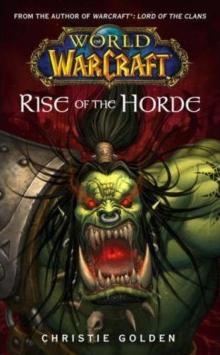 Rise of the Horde
Rise of the Horde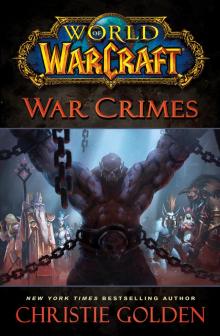 World of Warcraft: War Crimes
World of Warcraft: War Crimes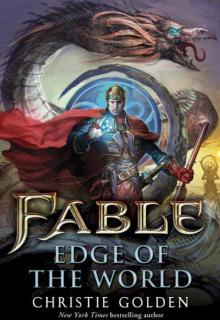 Fable: Edge of the World
Fable: Edge of the World Homecoming
Homecoming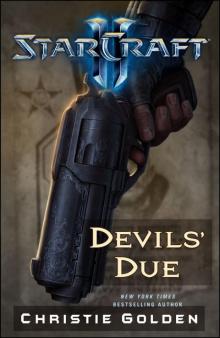 StarCraft II: Devil's Due
StarCraft II: Devil's Due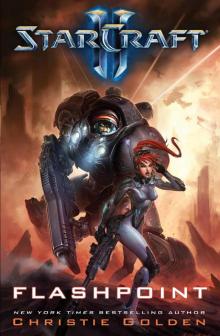 Starcraft II: Flashpoint
Starcraft II: Flashpoint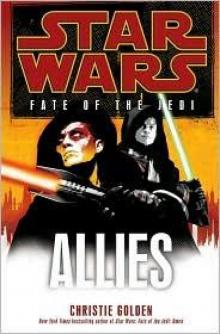 Allies
Allies Shadow Hunters
Shadow Hunters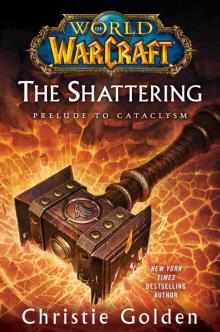 The Shattering: Prelude to Cataclysm wowct-1
The Shattering: Prelude to Cataclysm wowct-1 STAR TREK: VOY - Homecoming, Book Two - The Farther Shore
STAR TREK: VOY - Homecoming, Book Two - The Farther Shore King's Man and Thief
King's Man and Thief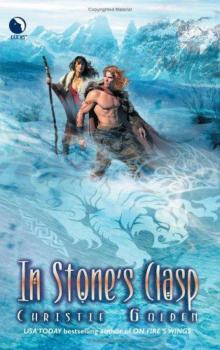 In Stone's Clasp
In Stone's Clasp Jaina Proudmoore: Tides of War
Jaina Proudmoore: Tides of War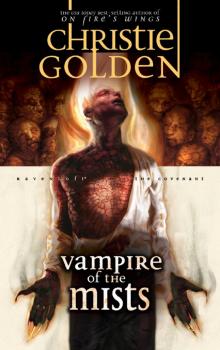 Vampire of the Mists
Vampire of the Mists Star Wars: Fate of the Jedi II: Omen
Star Wars: Fate of the Jedi II: Omen King's man and thief cov-2
King's man and thief cov-2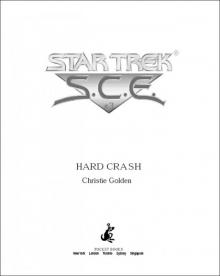 Star Trek
Star Trek StarCraft: Dark Templar: Twilight
StarCraft: Dark Templar: Twilight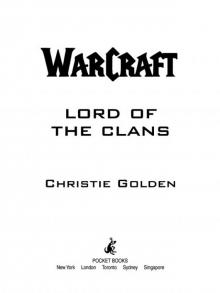 Lord Of The Clans
Lord Of The Clans ARKTIKA.1 (Short Story)
ARKTIKA.1 (Short Story)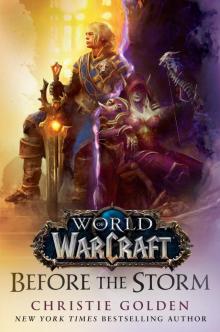 Before the Storm
Before the Storm STAR TREK: VOY - Homecoming, Book One
STAR TREK: VOY - Homecoming, Book One Shadow of Heaven
Shadow of Heaven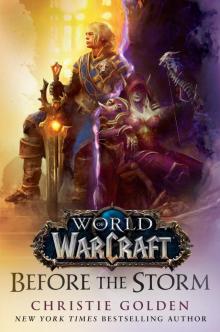 Before the Storm (World of Warcraft)
Before the Storm (World of Warcraft) Warcraft Official Movie Novelization
Warcraft Official Movie Novelization Flashpoint
Flashpoint STAR TREK: The Original Series - The Last Roundup
STAR TREK: The Original Series - The Last Roundup On Fire’s Wings
On Fire’s Wings Spirit Walk, Book One
Spirit Walk, Book One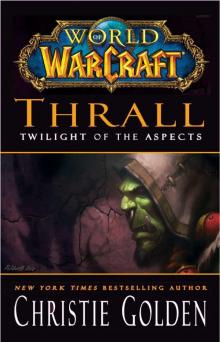 Thrall Twilight of the Aspects
Thrall Twilight of the Aspects Valerian and the City of a Thousand Planets
Valerian and the City of a Thousand Planets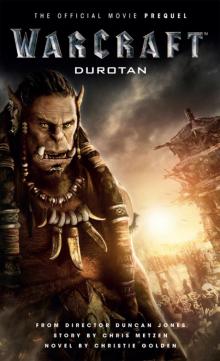 Warcraft
Warcraft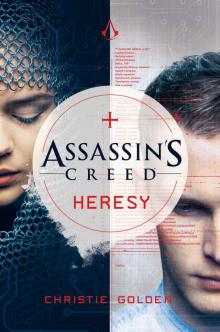 Assassin's Creed: Heresy
Assassin's Creed: Heresy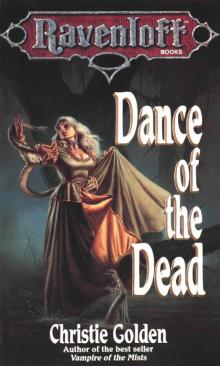 Dance of the Dead
Dance of the Dead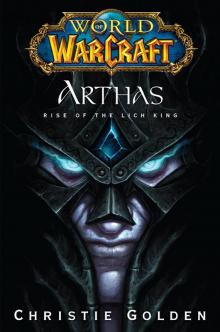 Arthas: Rise of the Lich King wow-6
Arthas: Rise of the Lich King wow-6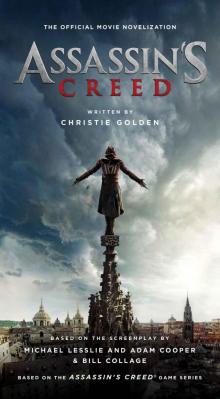 Assassin's Creed: The Official Movie Novelization
Assassin's Creed: The Official Movie Novelization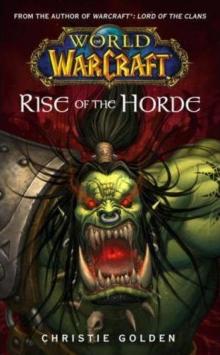 Rise of the Horde wow-2
Rise of the Horde wow-2 Dark Disciple
Dark Disciple Ghost Dance
Ghost Dance The Shattering
The Shattering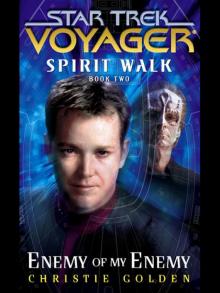 Spirit Walk, Book Two
Spirit Walk, Book Two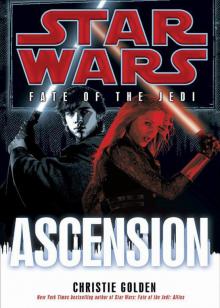 Star Wars: Fate of the Jedi: Ascension
Star Wars: Fate of the Jedi: Ascension Star Wars: Fate of the Jedi V: Allies
Star Wars: Fate of the Jedi V: Allies The Enemy Within
The Enemy Within Kindred Spirits
Kindred Spirits The Farther Shore
The Farther Shore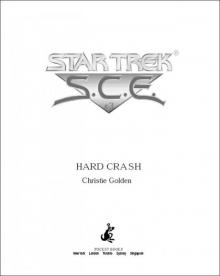 Star Trek: Hard Crash (Star Trek: Starfleet Corps of Engineers Book 3)
Star Trek: Hard Crash (Star Trek: Starfleet Corps of Engineers Book 3) Twilight
Twilight